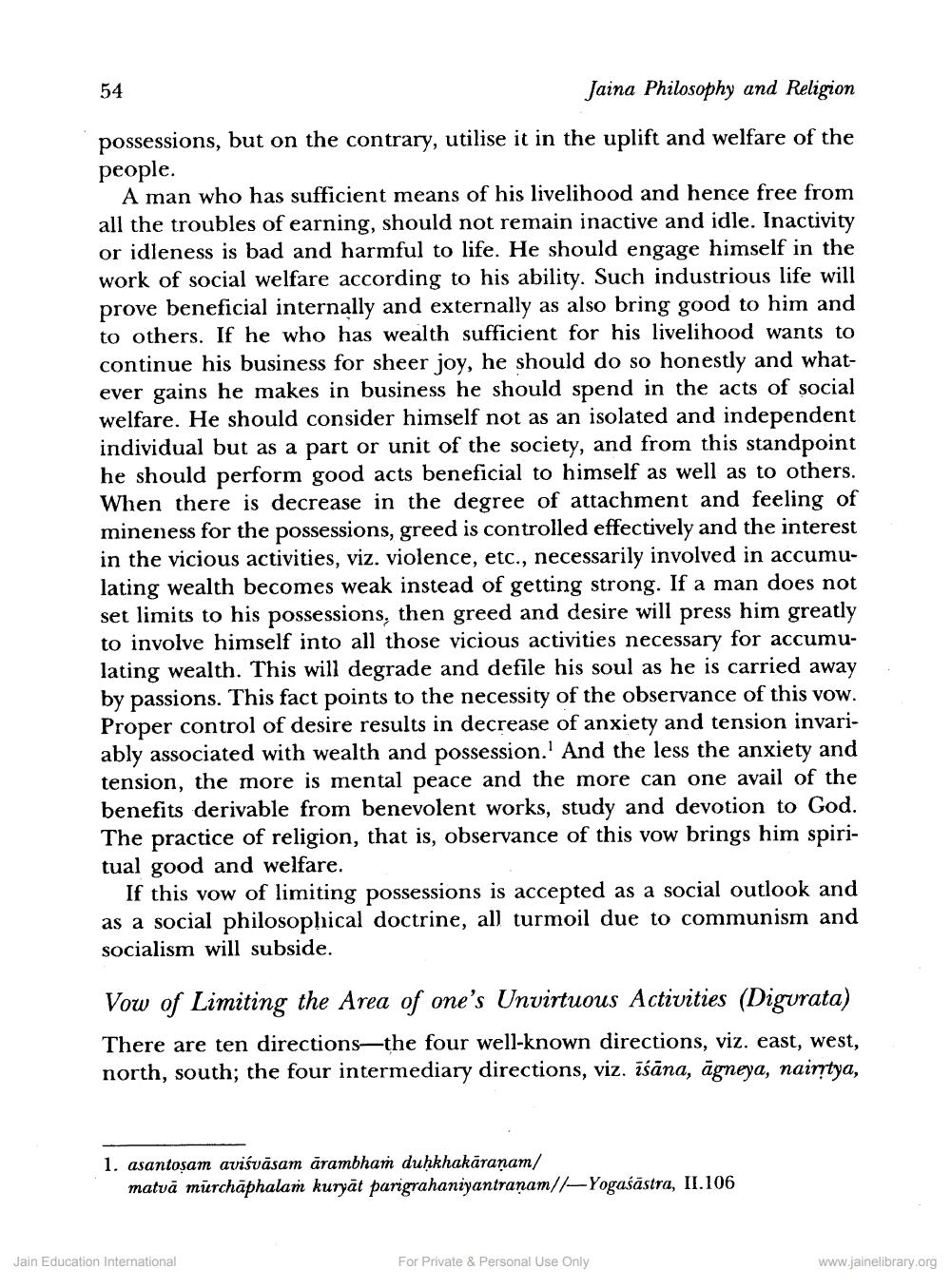________________
54
Jaina Philosophy and Religion
possessions, but on the contrary, utilise it in the uplift and welfare of the people.
A man who has sufficient means of his livelihood and hence free from all the troubles of earning, should not remain inactive and idle. Inactivity or idleness is bad and harmful to life. He should engage himself in the work of social welfare according to his ability. Such industrious life will prove beneficial internally and externally as also bring good to him and to others. If he who has wealth sufficient for his livelihood wants to continue his business for sheer joy, he should do so honestly and whatever gains he makes in business he should spend in the acts of social welfare. He should consider himself not as an isolated and independent individual but as a part or unit of the society, and from this standpoint he should perform good acts beneficial to himself as well as to others. When there is decrease in the degree of attachment and feeling of mineness for the possessions, greed is controlled effectively and the interest in the vicious activities, viz. violence, etc., necessarily involved in accumulating wealth becomes weak instead of getting strong. If a man does not set limits to his possessions, then greed and desire will press him greatly to involve himself into all those vicious activities necessary for accumulating wealth. This will degrade and defile his soul as he is carried away by passions. This fact points to the necessity of the observance of this vow. Proper control of desire results in decrease of anxiety and tension invariably associated with wealth and possession. And the less the anxiety and tension, the more is mental peace and the more can one avail of the benefits derivable from benevolent works, study and devotion to God. The practice of religion, that is, observance of this vow brings hi tual good and welfare.
If this vow of limiting possessions is accepted as a social outlook and as a social philosophical doctrine, all turmoil due to communism and socialism will subside.
Vow of Limiting the Area of one's Unvirtuous Activities (Digurata) There are ten directions—the four well-known directions, viz. east, west, north, south; the four intermediary directions, viz. išāna, āgneya, nairytya,
1. asantoșam avisvasam ārambham duḥkhakāraṇam/
matvā mūrchāphalam kuryāt parigrahaniyantrañam/-Yogaśāstra, II.106
Jain Education International
For Private & Personal Use Only
www.jainelibrary.org




